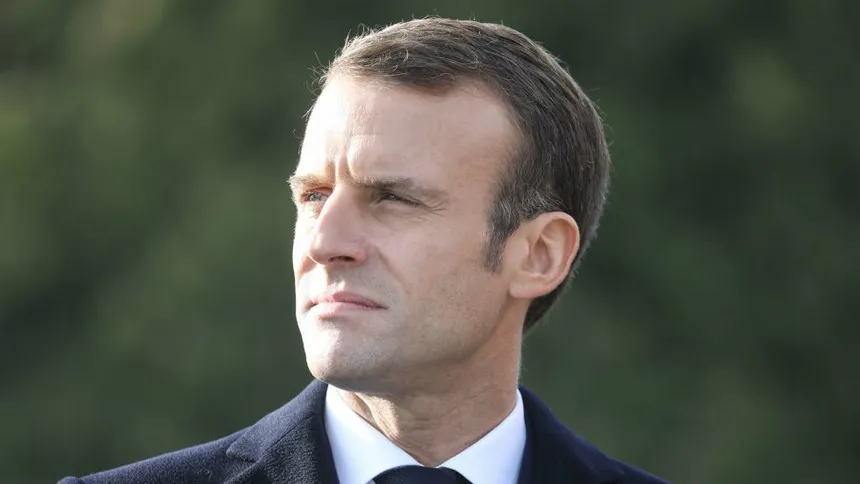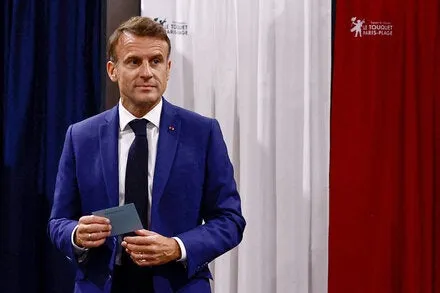French President Emmanuel Macron has called for moderate politicians from the left and the right to regroup and defeat the far right in the upcoming general elections. In a press conference, Macron emphasized the need for “men and women of goodwill who were able to say ‘no’ to extremes to join together to be able to build a joint project” for the country. This move comes after Macron’s pro-European party suffered a crushing defeat at the hands of the far-right National Rally party, led by Marine Le Pen, in the recent European parliamentary vote.
Macron’s decision to dissolve the National Assembly and call for an early legislative election has been met with uncertainty and division among opposition parties. While some on the left and right have begun to form alliances, others remain skeptical of Macron’s intentions and reluctant to cooperate with him. The far-right National Rally party, meanwhile, is working to consolidate its power and translate its European triumph into a national win.
Macron’s move to tackle the far-right is seen as a risky one, as it could result in the far-right leading a government for the first time since the Second World War. The outcome of the election is highly uncertain, as potential alliances and France’s two-round voting system could lead to unforeseen consequences. Despite these uncertainties, Macron remains convinced that a united front against the far-right is necessary to protect the country’s values and democratic institutions.
The far-right National Rally party, with its history of racism and xenophobia, is expected to win a significant number of seats in the European Parliament, potentially as many as 30 out of France’s 81. This has raised concerns about the potential impact on French society and politics if the party were to gain power.

French President Emmanuel Macron (Via Emmanuel Macron/Twitter)
Macron’s call for moderation and unity has been met with mixed reactions from opposition parties. While some have expressed willingness to work together, others remain wary of Macron’s political agenda and prefer to focus on their own campaign strategies. The situation is further complicated by the fact that many politicians who might be willing to form alliances with Macron are unwilling to cooperate with him due to their own ideological differences or past conflicts.
In the coming weeks, it remains to be seen whether Macron’s efforts to build a unified front against the far-right will be successful. If successful, such an alliance could help to contain the far-right and preserve the country’s democratic values. However, if unsuccessful, it could lead to a far-right government and unforeseen consequences for French society and politics.
The question remains whether Macron’s call for moderation and unity will be heeded by opposition parties and voters. As the election approaches, it is clear that the stakes are high and the outcome uncertain. The fate of France’s democracy and the country’s future hang in the balance.











































